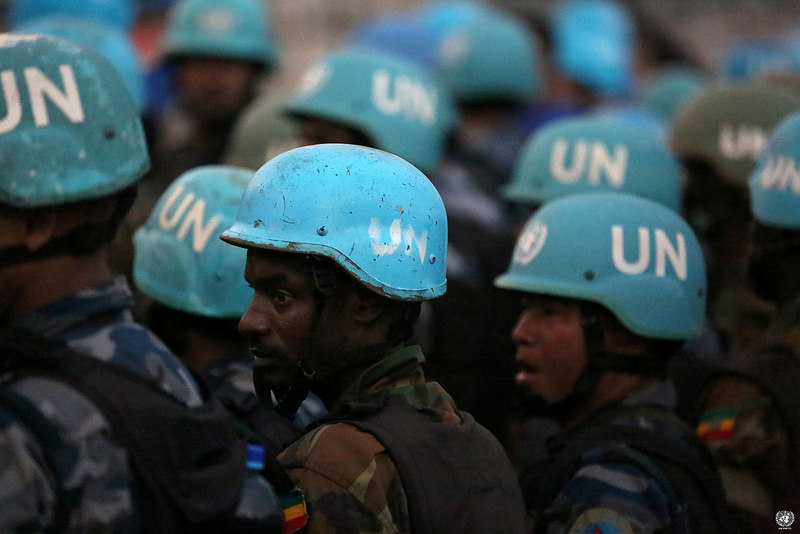On January 17, 2017, the European Court of Justice ruled that the Russian Dima Yakovlev Law banning American citizens from adopting Russian children is discriminatory on the grounds of its severe violation of human rights. The ruling came with an order for Russia to pay €3,000 in damages to 45 American plaintiffs who have been denied adoption since the law came into practice in December 2012. Russian foreign ministry has since stated that the ban will not be revoked.
The law in question was put into place as a response to the US Magnitsky Act. That Act, formally known as the Russia and Moldova Jackson-Vanik Repeal and Sergei Magnitsky Rule of Law Accountability Act of 2012, was created by the US Congress in December 2012. It has the intent of punishing Russian officials for the death of the Russian lawyer Sergei Magnitsky in a Moscow prison in November 2009. After his passing, investigations supported by Russia’s Presidential Human Rights Council revealed that the death was likely due to torture and severe beatings. The Magnitsky Act contains visa and financial sanctions against 60 Russian officials suspected to be responsible for the death of the lawyer, and serves as the response to the violation of human rights and a symbol of the growing anti-Russian sentiment within the United States. Putin’s government met the Magnitsky Act with fierce opposition. On December 28, 2012, just days after the passing of the Magnitsky Act, Putin signed a bill banning American families form adopting Russian orphans.
In an effort to deflect attention from the real purpose of the bill, its supporters cited mistreatment of Russian children by their American adoptive parents. Russian State Duma called the bill the Dima Yakovlev Law, after a Russian child who was adopted by an American couple. In July 2008, the toddler died from heat stroke after his adoptive father unintentionally left him in the car for nine hours. In response, several Russian activists who opposed the bill argued that many more Russian children die as the result of abuse and neglect in Russian orphanages than those adopted by American families. Over the 20 years prior to the passing of the Dima Yakovlev Law, more than 60,000 Russian children were adopted by American families, including many special needs children. Only 19 of those children have died – at a rate of roughly 0.03 percent. Russia’s child death rate is more than two times higher than that of the United States.
In practice, the law punishes orphans more than it does American politicians. Senior members of the Russian cabinet warned the government of this during the drafting of the bill, also expressing concern that it draws international attention towards the corrupt and devastating state of Russian orphanages. On December 25, 2012, Russia’s deputy prime minister on social issues Olga Golodets urged Putin to reconsider the signing of the law, stating that it violates the Convention of the Rights of the Child. Human Rights Watch called on the UN Committee on the Rights of the Child to evaluate its compliance with the Convention of the Rights of the Child. They also urged the Council of Europe to call on its Venice Commission to assess the law’s compliance with the European Convention on Human Rights.
Along with endorsing the bill, Putin signed a bill designed to improve domestic adoptions within Russia. In doings so, the bill calls for tax breaks for Russian families that have adopted orphans and increases the salaries of orphanage staff. There are over 700,000 orphans in Russia, and according to UNICEF estimates, about 95 percent of these orphans have at least one living parent who has voluntarily given them up. Many of these orphans suffer from physical or developmental disabilities.
Over 70 percent of medical equipment in Russian hospitals is either outdated or broken. In the last decade, the number of orphanages in Russia has increased by over 100 percent. Approximately 15,000 Russian orphans leave orphanages every year. 50 percent of them fall under the high-risk category; 40 percent become involved in crime and only 4 percent get admitted to a university. As many as 2.5 million Russian orphans are homeless. Children with special needs are particularly vulnerable, as most orphanages lack any will to provide more than a minimal standard of care for them. The chance of adoption for a child with special needs by a Russian family is staggeringly low. Despite Putin’s attempt to improve the state of domestic adoptions, these statistics have not seen any substantial improvement since the passing of the bill. The Dima Yakovlev Law also does little to address any of these concerns.
The Dima Yakovlev Law blocked 46 pending adoptions. Most of those children met their prospective parents prior to being denied exit from the country. The Washington State of Department reacted by issuing regret at the passing of the bill, recognizing that this was a decision motivated deeply by political issues. Senator John McCain said that the law would have a “cruel and malicious” effect on thousands of children and babies.
The final verdict of The European Court of Justice is that the Dima Yakovlev Law violates the European Convention of Human Rights, which guarantees the right to respect for family life. Deputy Justice Minister Georgy Matyushkin, Russia’s representative to the court, stated that Moscow intends to appeal the ruling within the next three months.
Photo: Vladimir Putin gives an interview to the German ARD (2013), by kremlin.ru via Wikimedia Commons. Licensed under CC BY 4.0.
Disclaimer: Any views or opinions expressed in articles are solely those of the authors and do not necessarily represent the views of the NATO Association of Canada.




